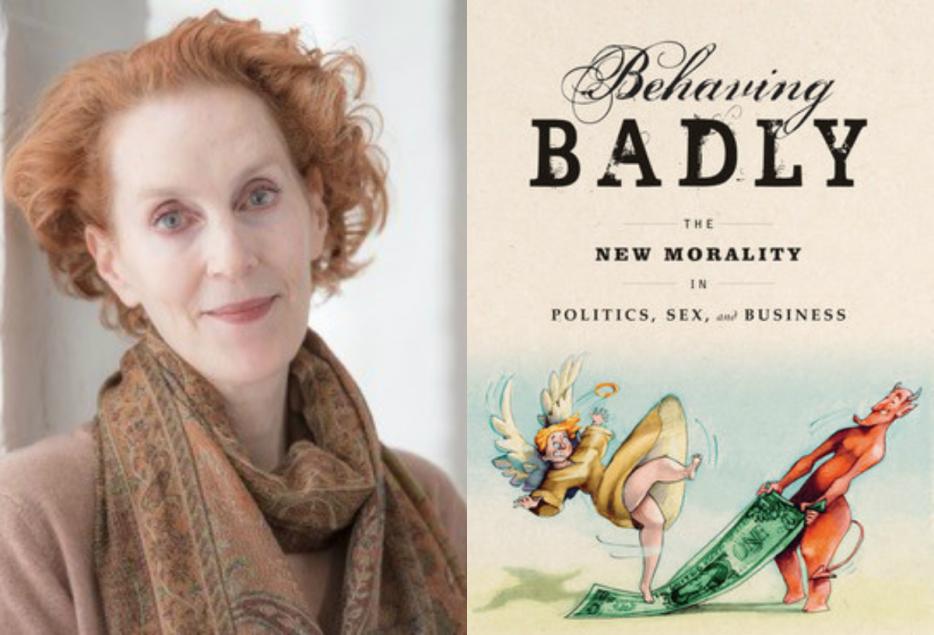Last month, I spent a week in Cuba, much of it based in Havana, the first time in a long time I’d travelled completely untethered from the Internet. Toward the end of our trip, outside the Museum of the Revolution, we struck up a conversation with a man from Atlanta, who wore an army-green field hat and a Che Guevara t-shirt and was clearly very excited about being in the city. He said he’d wanted to visit while visas were still available; he didn’t think Donald Trump would keep diplomatic relations open for long. I made a passing joke about all the possible things the president could’ve done since I last checked the news—five days seemed like plenty for a full-blown autocracy to settle in. “Well, Trump tore up the White House,” the man offered. “He said Obama bugged the White House and then he tore it up trying to find the bugs.”
Okay, so: not quite. But there was precisely nothing about this scenario—not Trump thinking it, not Trump saying it, not Trump turning over chairs and ripping down golden curtains with his own tiny hands—that struck me as implausible. I’ve lost my capacity for astonishment. And I can’t begin to blame that on Trump alone: Though he may be a spectacular model of egregious behaviour, he’s hardly the only guy dispensing with decorum. Expecting a standard of conduct from politicians, businesspeople, celebrities, judges, athletes, academics, or rush-hour subway commuters now seems ludicrously quaint.
It’s tempting to be sullen, or to throw up your hands, or to ask, as author Eden Collinsworth does, “where does one find solid moral ground on what is proving to be the porous bedrock of our 21st century?” but to mean that just as a rhetorical question, punctuated by more throwing up of hands. Give Collinsworth credit, then, for striving instead to find a meaningful response. In Behaving Badly: The New Morality in Politics, Sex, and Business (Nan A. Talese), she canvasses a whistleblower, an army general, a Holocaust survivor, a prime minister, a video-game designer, a murderer, and Margaret Atwood—among others—to better understand how we can make moral choices in what she terms an ethically flexible age.
Danielle Groen: When Barack Obama would address bigotry or nationalism or limitations on speech, he had a habit of saying, “That’s not who we are.” There’s an implication that citizens share a sense of morality. I thought we could begin with where that morality comes from.
Eden Collinsworth: That’s exactly where I started. My sense is that morality is an inner voice, and it’s basically what tells you not to do something, even though it’s not illegal, or you won’t be caught. I grew up with a certain sense of morality instilled by my parents. I’m perhaps one of the last generations where that occurred. My son is now a young man. I’m confident he’s utterly decent, but that’s not so much the moral values I instilled in him as it is what’s shaped his life in his twenty-seven years. There have been these profound changes, in technology especially, which have given a younger demographic more of a 360-degree view of morality. We’ve never been so connected. Here you are in a different time zone. Here I am, in London, where it’s raining outside. I can walk down the street and call someone in China. That said, we are still grappling with this instinct to retreat into what we know. In all of my travels writing this book, it seemed increasingly clear to me that we operate in cultural, socio-economic, and sexual silos. No matter how sophisticated we think we are, we fall back on that as a control panel.
But that panel isn’t necessarily fixed—fifty years ago, homosexuality was a criminal act in Canada; last year, our prime minister marched in pride parades across the country. Are moral shifts inevitable?
I think the most dramatic change in my lifetime has been the moral attitude toward sexuality. There’s definitely been a paradigm shift. I don’t think that’ll retreat. I believe it started in the courts but very quickly wove into the cultural fabric. There’s no doubt in my mind that—at the risk of sounding condescending as heterosexual—it’s been normalized. What I grapple with as a woman is why there hasn’t been an equivalent momentum with women’s rights. That’s so beyond me. I can’t quite figure that out.
Well, a man who bragged on tape about committing sexual assault now sits in the Oval Office. What happens when there don’t appear to be consequences for behaving badly?
I’ve been based in New York a great deal of my life. Virtually everyone from New York is from some other place. That’s the deal. I’ve heard obscenities and vulgarities, but I’ve never heard a racial attack. Recently, I got on the subway for an appointment uptown. I was seated, because I got on downtown; all I saw were legs and disembodied voices. Somebody inadvertently shoved somebody else, who confronted the person. The exchange turned racial almost immediately. What the man said was, “Go back to Africa.” I’d never heard that before. Maybe he’s always felt that, but now he’s allowed to express it—it’s been normalized because of the atmosphere propagated by Trump. It weaves into the fabric. It becomes acceptable. That said, with the tape, I think something mattered more than that. The fact is that people have lost jobs. Those jobs will not come back. I don’t care how many walls you build or what you promise. But if somebody promises you employment and a salary cheque, who cares what he says on a bus?
But those jobs won’t come back. And we’ve seen a bunch of major developments in the past year that hinged on misinformation. The Brexit campaign lied about how much money the UK gives the EU. Trump lied about pretty much everything, whether it’s crime rates or immigration vetting or not cutting Medicaid. Does morality rely on a shared set of facts?
That’s a fascinating question that speaks to a deeper question that is almost rhetorical: What do you want to believe? If you want to believe something, you’re determined to believe something, then there is a different method of receiving and generating news that can feed that now. I think the only thing that will change that attitude, frankly, are results. He’ll either get the results or he won’t.
How much do you imagine you’ll have to talk about Trump while promoting this book? And did his victory challenge any of the ideas you had about moral behaviour?
Truth be told, the book was scheduled for June and moved forward. The publishers asked me, “Would you please revisit the sections where you’ve written about politics and Trump in particular?” The situation has absolutely allowed a different public face to America’s morality. For whatever reason, he was a change agent. I think technology—24-hour news stations and social media—had a great deal to do with it. It enabled it. The fact is that, until Trump appeared on the scene, there was always pushback. Whether it was the church saying, “You shouldn’t say those things. You shouldn’t even think them, but you most certainly shouldn’t say them.” Or academics saying, “That’s incorrect. That’s not right.” Whether it was society in general or your parents—it doesn’t matter anymore. Those things were said and as a result it’s now acceptable to say them publicly. And social media invites participation where everyone feels, right or wrong, that they have a say.
But in collapsing that distance between the powerful and not-so-powerful, social media creates an opportunity for people to call out questionable or unethical actions.
It also informs the way we communicate and our ability to be empathetic. Even when you and I are speaking, I’m sensitive to and aware of the tone of your voice. Sometimes there’s hesitation, sometimes there’s enthusiasm. I don’t think we’re born empathetic; the only way that comes to be is by interacting with people in real time, usually in front of you. Those abilities and aptitudes are like a muscle. The more abstracted you become, the more you fall back on your own prejudices. It all moves forward so quickly. You become angrier more quickly. There’s no subtlety or way of measuring a reaction.
Any discussion of whether advances in technology encourage us to behave in ways we otherwise wouldn’t makes me think immediately of Anthony Weiner, a man who seems constitutionally incapable of not sending women pictures of his penis. Without the technological tools, though, wouldn’t his need for approval, or his propensity for risky behaviour—pick your explanation—just find another outlet?
I suspect he would have found a different outlet and it probably wouldn’t have had the same audience. He would’ve done something. He sounds frankly pathological. On a slightly less dramatic or repulsive level, I do think one behaves differently given the technological resources. Men tweet things to women they wouldn’t necessarily say to their face. People accuse people of things they wouldn’t necessarily say in person. I think there’s no doubt about it.
You mentioned problems of abstraction. What about in combat? If we take humans further and further from the battlefield and let drones do the killing for us, do we create a moral distance from our actions?
That’s the question that many people have. Are you making killing too easy? I spoke with Eric Zimmerman, who is a game designer. He talked about the magic circle. It’s where the game takes place, and you understand that the way you operate within this magic circle is not the way you operate in real life. What happens when warfare becomes the magic circle? From what I understand, the young people who are operating the drone equipment on the launch end come with a history of using these video games. They literally have the eye and agility for it. It does abstract you. But from the research I did, I promise you the people who are launching these drones don’t get a free lunch. In other words, they have problems and guilt. It’s not as if they walk away feeling like it’s easy.
Or like it doesn’t carry consequences.
I think they’re very much aware if they’ve killed people.
I’ve suddenly been hearing people cite climate change, resource scarcity, or overpopulation as reasons they’re hesitating to have a child. Is there a moral responsibility to think about where the world is heading before having a baby?
I don’t know. I’ve reproduced once and that was enough. It’s very expensive and exhausting. I don’t regret it for a moment. I think that if there’s a moral obligation, it’s to stick around and try your best to sort it out. It comes down to decency and indecency. I’ve traveled all over the world and lived everywhere under very different circumstances. I don’t need an interpreter or a priest to recognize what kindness is.
Can that kindness be programmed into robots? Can morality be standardized?
One has to put it in perspective. While we’re arguing the pros and cons, technology is moving forward. It’s the same with making babies. We can put a moratorium on altering genes, but guess what? In China, they’re going to do what they’re going to do. We might be thinking one way about robots, but in another country they’ll be programming robots in a different way. That said, it’s going to be quite a while before robots get to the point where they’re operating in ways that aren’t programmed by human beings.
But some of the technology that’s being discussed, whether it’s five or fifty years from fruition, is bananas. It stretches belief and comprehension. Is there a danger that the conversations around the ethics of that technology will be limited to the people who happen to get it?
I agree with you entirely in terms of that concern. The people who are inventing the future of technology, and as a result have so much impact on our lives, are very removed from the people who will take full advantage of the technology. All this technology is coming from publicly traded businesses. The first obligation of the CEO of a company, especially if it’s publicly traded and owned, is to its shareholders to increase value of the stock. It’s not altruism.
That’s scary. I find myself scared a lot.
Me too!
I’m scared about what strikes me as a moral failure in response to the refugee crisis. I’m scared about robots stealing my job. I’m scared that it doesn’t matter if robots steal my job, because we’ll soon have made the earth too hot for anyone to live. How do I get through that fear?
You keep thinking, this can’t get any worse, and then actually it does, or it gets worse in a different way. What I can say is that if you look for something where you feel as though you’re making a difference, that changes things. For me, it was to join the board of Relief International. You take a step back. I don’t know about the rest. I know one has to believe in the best, otherwise you just crawl under a rock. Come out from under the rock. It’s very bad for your complexion.






